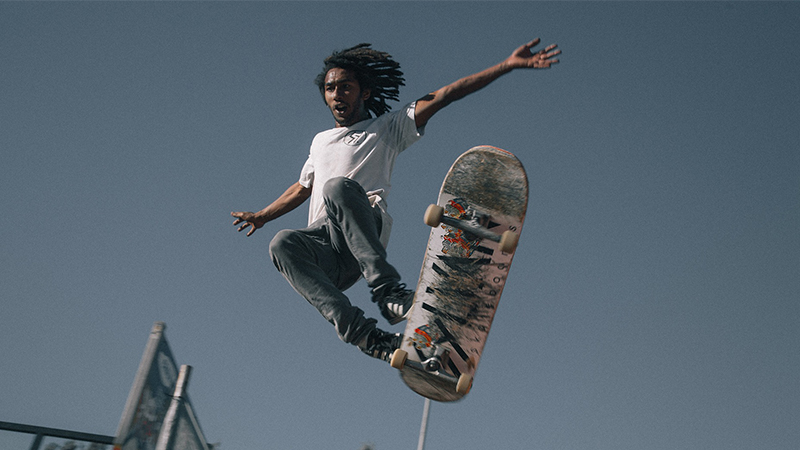By Stephen Kern
Skateboarders across the globe have mixed feelings about the debut of skateboarding as an Olympic sport. Some were worried about what the Olympics would do to the culture of skateboarding, and some were hopeful that it would bring new opportunities to skateboarders and change the public’s views of skateboarders. Skateboarding, to many, is a way of expressing their individuality. Since there is really no authority with skateboarding, no coaches telling you what to do or scheduled practices. Freedom to skate alone or with friends, at your house, in a parking lot, in a park. Skateboarding allows people to escape the real world for a little while. All you need is a board and some concrete.
A huge part of how professional skateboarders make a living is by video parts that display street skating. Street Skating is the act of exploring urban land and finding obstacles like handrails and ledges to skate on. This is also illegal a lot of the time and skaters must deal with angry citizens, security guards, and police. I think that street skating is the most raw, true, and authentic display of skating. So there have been a lot of strange feelings surrounding this debut of Olympic skating. There are even shirts being sold online that say “Skateboarding is a crime, not an Olympic sport” for the true rebellious skaters to wear. People are torn between skateboarding being a crime and a competitive sport. Tony Hawk stated in an interview with CNN that we didn’t need validation from the Olympics, they needed us.
When it comes down to it, skateboarding is both. Even though The Olympic Games added skateboarding to their roster, skaters will never stop jumping fences, sneaking past security guards, and waxing handrails. Many thought that the Olympics would cleanse skateboarding, but I’m happy to think that we left a mark on them.




